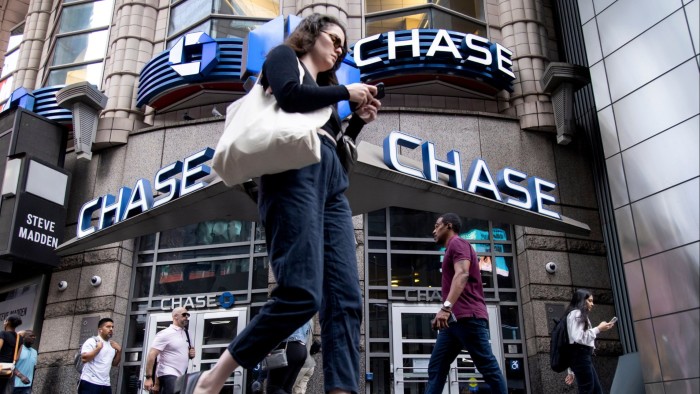Stay informed with free updates
Simply sign up to the Financial services myFT Digest — delivered directly to your inbox.
The US Consumer Financial Protection Bureau has sued JPMorgan Chase, Bank of America and Wells Fargo for allegedly failing to protect customers from fraud on payments platform Zelle.
CFPB director Rohit Chopra accused the banks, which are among a group of seven that collectively control Zelle operator Early Warning, of rushing to get the payments platform online in the face of competition from other apps such as Venmo and Cash App. Zelle’s operator is also named as a defendant.
The lawsuit escalates the brewing political debate over whether banks should face greater liability when consumers are scammed on payment platforms.
The CFPB accused Zelle and the three banks of having only limited methods to verify identities, allowing bad actors to move between banks, ignoring warnings that could have detected fraud and abandoning customers after they had been scammed.
The CFPB claimed that customers at JPMorgan, BofA and Wells, the three largest US banks by deposits, had lost more than $870mn because of these alleged failures. The three banks received fraud complaints from more than 900,000 customers, the lawsuit alleged.
JPMorgan, BofA and Wells did not immediately respond to requests for comment. Zelle said the allegations were “legally and factually flawed” and that it was “fully prepared to defend this meritless lawsuit to ensure their service does not suffer”.
The future of any lawsuit by the CFPB could be uncertain given that the agency, which has faced calls from some Republicans to be abolished, is set to come under new leadership once Donald Trump is back in the White House. The president-elect has vowed to loosen regulations across a range of sectors.
Zelle said “the timing of this lawsuit appears to be driven by political factors unrelated to Zelle”.
Zelle launched in 2017 as a peer-to-peer payments system that can make instant money transfers. However, the speed of transactions has made it a popular tool for potential scammers, who trick customers into sending money, so-called authorised push payment fraud. Popular schemes include romance scams and the impersonation of government officials or agencies.
Unlike contested debit and credit card transactions, the rules for reimbursements of account-to -account payments are less clearly defined in the US.
The UK set a precedent earlier this year when it set a new requirement for banks to reimburse victims of these APP scams for up to £85,000.
JPMorgan chief executive Jamie Dimon argued in October against having “a system where every payment that is knowingly sent, we’re responsible for”.
Read the full article here




